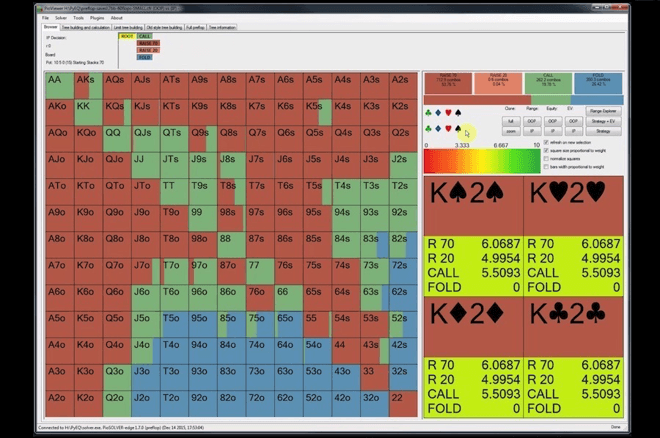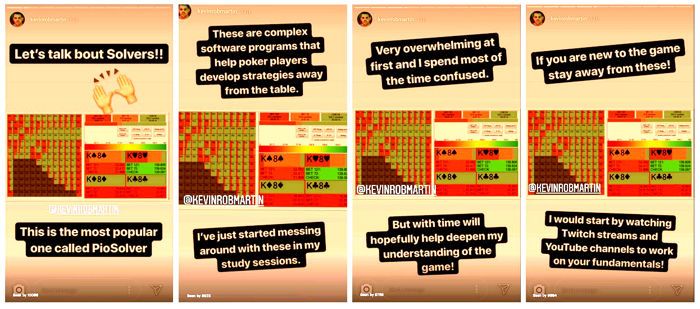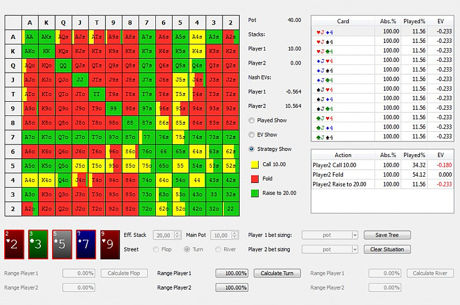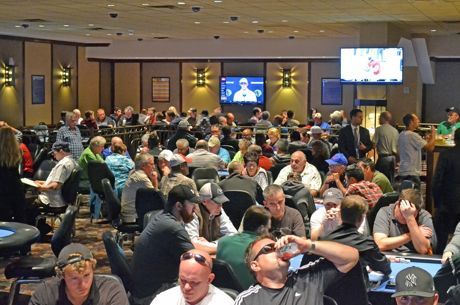Getting Introduced to Poker ��Solvers��

If you follow and play poker, and especially if you study poker strategy and pay attention to the latest trends and topics, you might've heard of poker "solvers." High-stakes players especially seem to be bringing up solvers more and more often when describing steps they are taking to improve their games.
These solvers are software programs that can provide users game theory optimal (GTO) solutions to specific poker situations �� or something close, anyway. Users input various scenarios from which certain actions are recommended, with the solvers sometimes suggesting plays that aren't necessarily intuitive or thought to be "standard."
Describing these programs as "solvers" is perhaps misleading, given that they don't necessarily "solve" no-limit hold'em (or pot-limit Omaha) once and for all. They do however harness computing power to produce solutions to poker problems players can study and learn from in order to help when making decisions at the tables.
In a recent Instagram series, Kevin Martin shared how he was going about introducing himself to solvers. He sensibly suggests new players not worry about them and instead focus more on learning fundamentals.

Parker Talbot recently shared some thoughts as well about solvers and their use among high-stakes players on Mark Herm's show The Chirp Herm Show on the Tournament Poker Edge Podcast network.
Maria Konnikova recently described using solvers as part of her study of strategy when talking with PokerNews at EPT Prague. As she put it, working with solvers provides a way to improve one's understanding of what game theoretically optimal plays might be in certain situations, although that doesn't necessarily mean always trying to execute those plays.
"The way I use solvers is not necessarily to play exactly like that, but to understand theoretically what I should be doing in certain spots," Konnikova explains.
Konnikova talks as well about how solvers can help players find bluffs when they might not otherwise think of bluffing, and even to execute bluffs more confidently. Take a look:
Of course, all of this talk and use of solvers is taking place against the backdrop of broader discussions comparing playing a "GTO"-like game to taking a more "exploitative" approach that more readily seeks to attack specific opponent weaknesses than to adopt a balanced or "optimal" style.
If you're curious to get a more explicit introduction of what a solver is, here's a short video offering an overview of the one mentioned by Kevin Martin above, PioSOLVER:
Lead image: PioSOLVER









